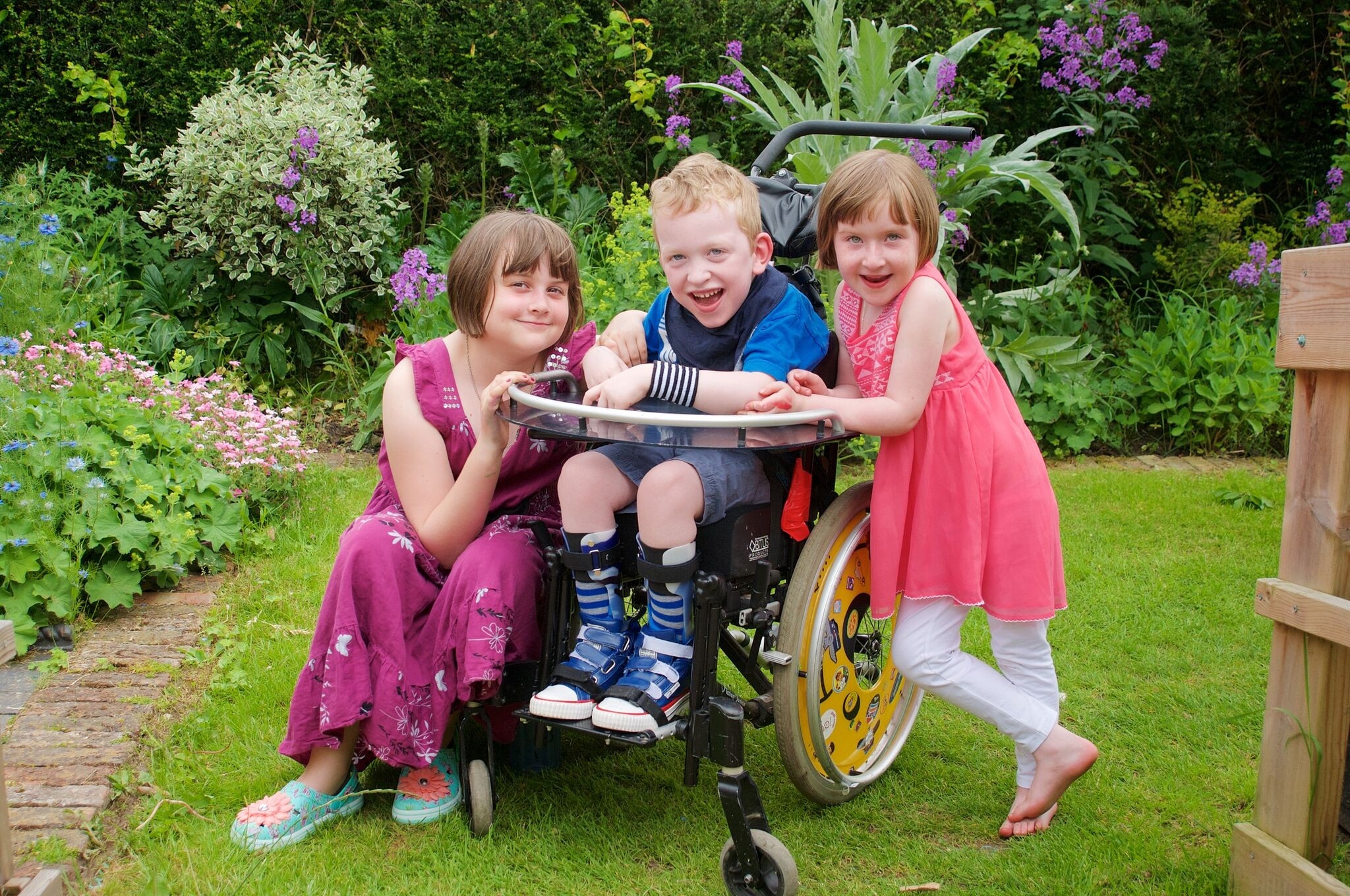
TOM BARNES is one of around 2,000 babies born in the UK each year who are diagnosed with cerebral palsy.
This lifelong condition affecting muscle control and movement is caused by damage to the brain before or during birth.
Tom and his twin sister Iris were born two months early after their mum Maria developed the serious pregnancy complication pre-eclampsia.
Maria and husband Terry were concerned about Tom from his earliest days because he seemed very stiff, had great difficulty feeding and screamed constantly.
He was diagnosed with cerebral palsy shortly before his first birthday.
Doctors say that Tom’s cerebral palsy was caused by a type of brain injury called periventricular leukomalacia.
This most often occurs when parts of the brain are starved of blood and oxygen.
The exact cause of this injury is not known.
Maria and Terry, from West Sussex, hoped that Tom would not be too severely affected, but an MRI brain scan carried out at the Royal Sussex County Hospital in Brighton around a month later confirmed that Tom had quadriplegic cerebral palsy.
Maria (41) explains: “Both sides of his brain are affected, governing control of all four limbs and his torso — a severe physical disability.”
Tom is a bright boy, and thankfully he can see, hear and speak.
But he finds it extremely hard to control his arms and legs, has a lack of balance and suffers from muscle stiffness and weakness.
“Tom uses a wheelchair and we have been told it is unlikely that he will ever be able to walk unaided,” continues Maria.
“Even using a special walker that fully supports his body, he finds it difficult to move very far.
“Everyday activities such as eating and playing with toys are challenging for him.
“Tom will need immense levels of care throughout his life.”
Despite the challenges he faces Tom, who’s now six, is a positive and happy child.
“Tom is really funny and very brave and wants to be involved in everything that’s going on,” Maria says.
“In his imaginary play, he’s not disabled — he’s a fireman or an astronaut.
“He is a happy, determined little boy.”
She adds: “We’ll never forget how fortunate we are that our little boy can speak, because many children with quadriplegic cerebral palsy aren’t able to.”
Problems affecting the hip joint are a key cause of disability for children with cerebral palsy, often resulting in significant pain and reduced mobility, and this is something that has affected Tom.
He has endured muscle-release surgery on his legs and hips because his muscles were pulling his joints out of place.
Action Medical Research, the charity who fund medical research for children, recently awarded a grant of more than £150,000 to a team based at the One Small Step Gait Laboratory which is part of Evelina London Children’s Hospital.
They aim to develop a portable 3D ultrasound system for scanning the hip joints of children with cerebral palsy.
This could eventually replace the use of repeated x-rays for monitoring these children, providing a safer and more accurate way of assessing their hip development.
Since ultrasound scans could give more detailed pictures, it may also make it easier to predict early on which children are at greatest risk of full hip dislocation, meaning they can be treated sooner.
Lead researcher Dr Adam Shortland says: “We hope to develop a safe new technique that can be used regularly to spot early hip problems in children with cerebral palsy.
“We are also investigating whether the new technique can be used to predict whether any hip problems a child has are likely to get worse.”
Research like this means the world to Maria, who recently spoke about her family’s experiences to a group of Action Medical Research volunteers at Cottesmore Hotel Golf and Country Club, near the charity’s head office in Horsham.
“Anything that helps improve outcomes for children with cerebral palsy, and helps parents make the right decisions for their children, has got to be a really positive thing,” she says.
“We adore Tom just exactly as he is.
“He is brave and funny and he does not let cerebral palsy define him.
“We are determined that Tom should lead as normal a life as possible.
“He’s still a little boy and we want him to have a normal childhood and just have fun.”

Enjoy the convenience of having The Sunday Post delivered as a digital ePaper straight to your smartphone, tablet or computer.
Subscribe for only £5.49 a month and enjoy all the benefits of the printed paper as a digital replica.
Subscribe